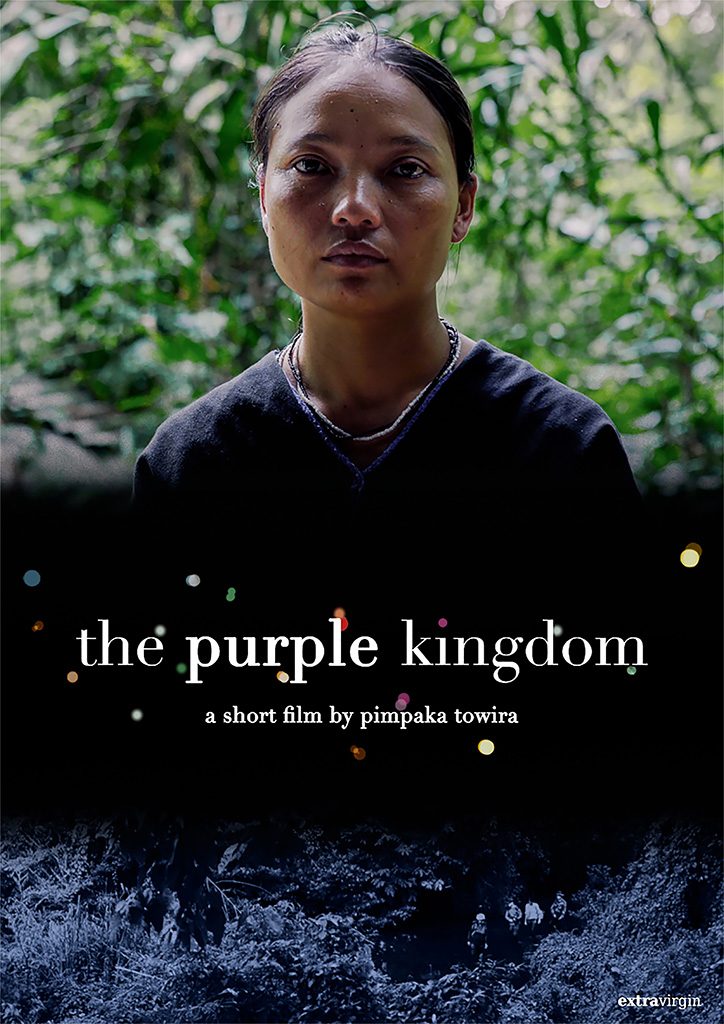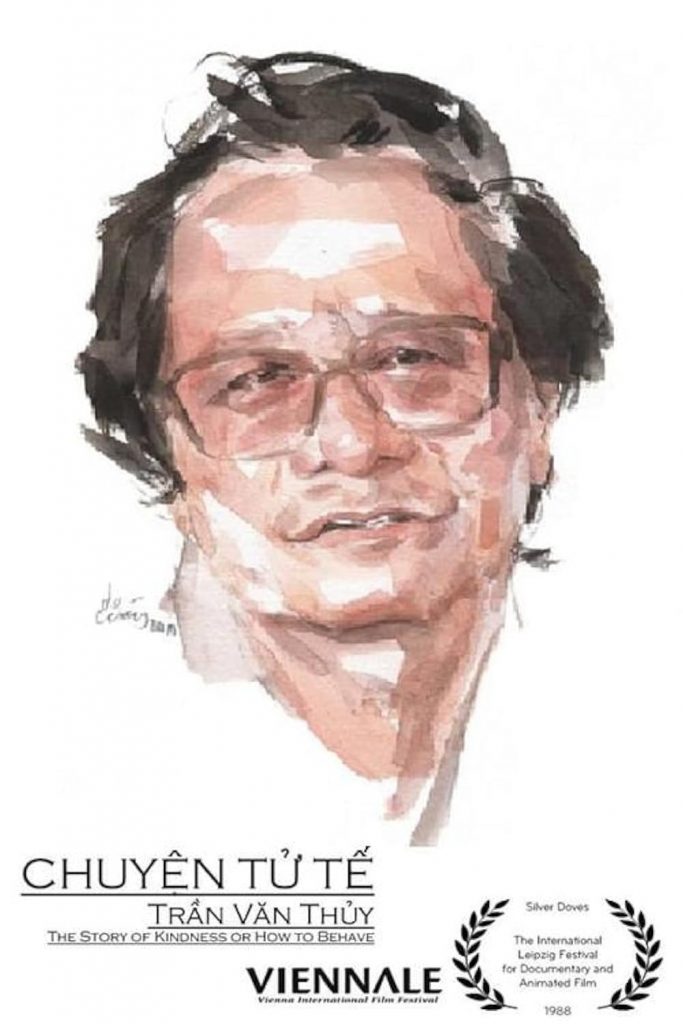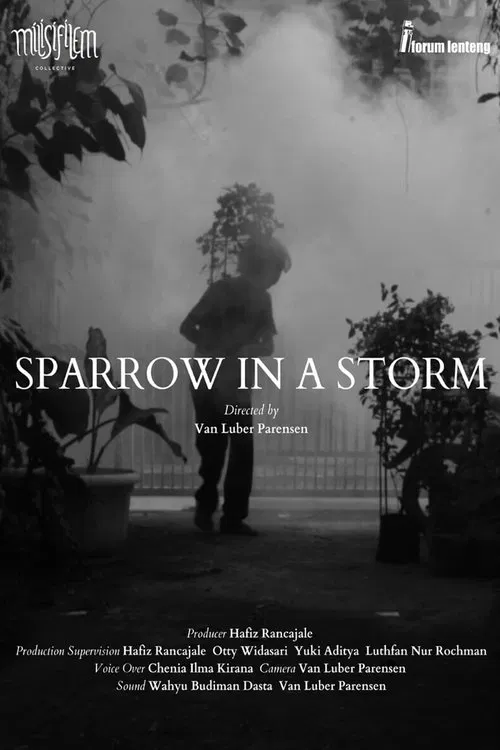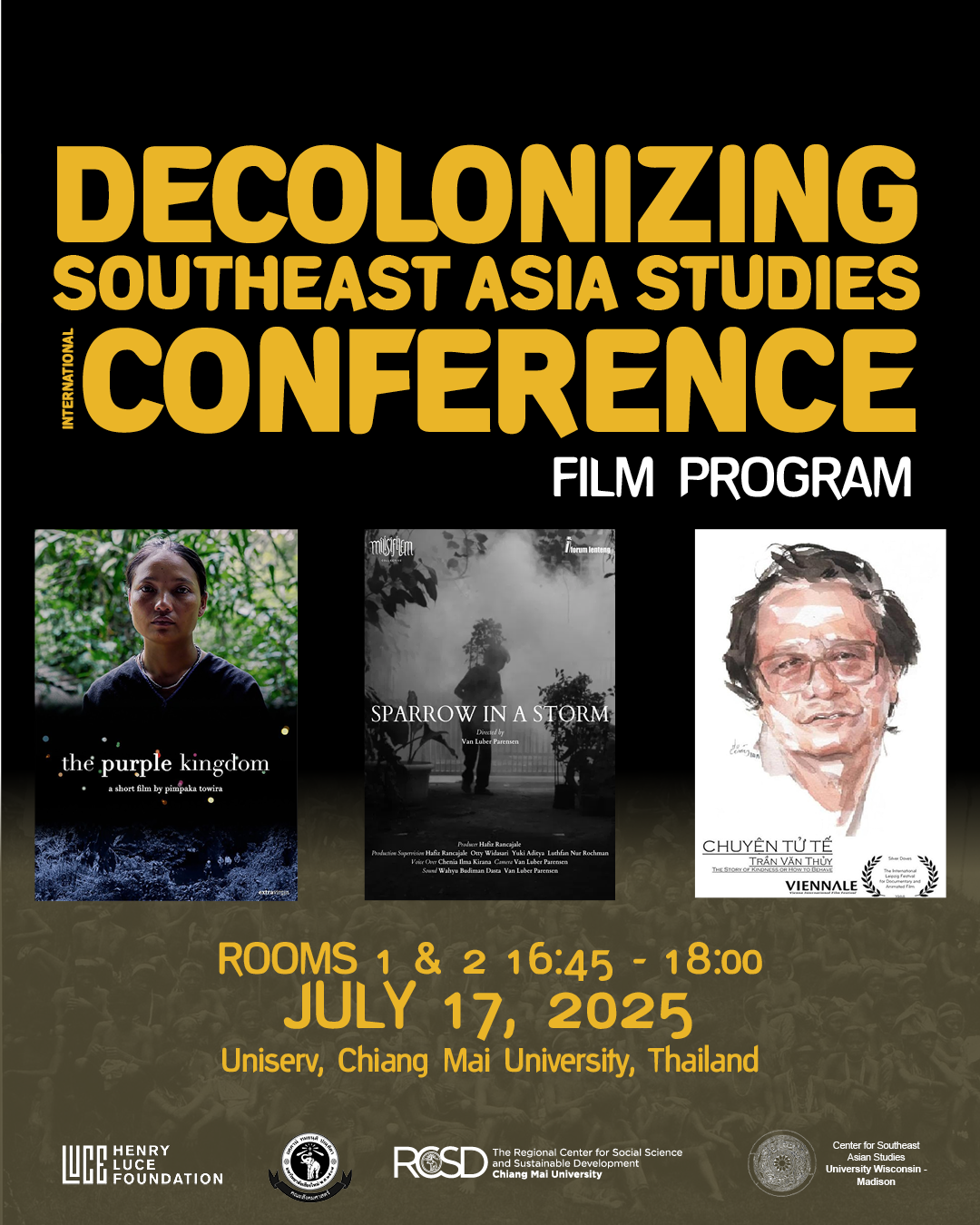The Decolonizing SEA Studies Conference will be screening three short films from Thailand, Indonesia, and Vietnam on 17 July from 16:45 to 18:00 in rooms 1 & 2 of Uniserv.
How do we spot what is the face of colonization and what’s not? The films are the reflections of different situations that people experience in life. This selection of films ranges from a 40-year-old classic to recent works.
Vietnam undertook the economic reforms of “Doi Moi” in 1986, with the goal of creating a “socialist-oriented market economy. In the domestically censored film “Chuyện Tử Tế” (Story of Kindness or Ways of Behavior), instead of presenting the good lives of people, the filmmaker reflects the bad experiences he and his friends went through, in contradiction to positive nationalist propaganda.
In Thailand, tensions between indigenous people living deep in the forests and the central government, which seeks to control and restrict access to the area, are a long-running problem. Different cultures, ownership, and the exercise of power over the forest and land has often lead to violence.
Finally, the voice from a letter of the colonial era is still haunting the current time in Indonesia.
– Som Supaparinya, program curator

The Purple Kingdom; 2016 by Pimpaka Towira – 30 min, colour, sound [Thailand]
Synopsis
Inspired by the story of Karen activist Porlajee Rakchongcharoen (a.k.a. Billy) who disappeared near Kaeng Krachan National Park in Petchaburi province, 100 miles (161 km) south and west of Bangkok. Park authorities arrested Billy on April 17, 2014 for possessing wild honeycomb and six bottles of wild honey, but released him with a warning. He disappeared shortly after.
In 2012, Billy led a Karen group that filed a complaint with the Central Administrative Court against the Department of National Parks, Wildlife and Plant Conservation and the Natural Resources and Environment Ministry. The case focuses on the actions of Kaeng Krachan National Park chief and other forestry officials, who burned down 20 Karen houses in a 2011 operation to deal with forest encroachment. Billy had been collecting evidence and interviewing witnesses to press his case.
The film explores Billy’s wife’s attempts to seek justice, played by herself, while juxtaposing her situation with the search for the body of a middle-class woman’s husband, who was killed in a helicopter crash in the same forest.
Director’s Biography
Pimpaka Towira is a pioneer among female film directors in Thai independent film since the early 1990s. Her commitment to cinema has seen her work as a producer for emerging filmmakers such as Uruphong Raksasad’s award-winning documentaries, Agrarian Utopia and The Songs of Rice, and Sivaroj Kongsakul’s Regretfully at Dawn.
She was Program Director for the Bangkok International Film Festival in 2001, 2008 and 2009 and most recently, Program Director for the Bangkok ASEAN Film Festival since 2015. From 2017-2018, she was the Programme Director for Singapore International Film Festival.

Chuyện Tử Tế ( The Story of Kindness or How to Behave),
1985 by Trần Văn Thủy – 48 min, colour, sound [Vietnam]
Synopsis
Dying of cancer, the cameraman Dong Xuan Thuyet asks his friends to make a film on the subject of “tu-te” – human relations, fraternity or, simply, kindness. Thus charged, the filmmakers explore the realities behind nationalistic slogans to reveal troubling scenes of Vietnamese life in a society which, although not without hope, seems no longer able to define humanitarianism – or greed for that matter.
This film was banned in Vietnam but screened at the Leipzig International Documentary Film Festival and won the Silver Dove award there. This year marks the 40th anniversary of the film.
Director’s Biography
Tran Van Thuy was born in 1940 in Nam Dinh, Vietnam. He was educated in cinematography at Vietnam Film School. For five years he lived as an anthropologist with the nomadic Khu Sung people, until the war broke out.
After a stint as a combat cameraman, in 1972 Tran Van Thuy went to study at Moscow Film College under Roman Karmen. Since 1977 he has worked for the Vietnam Central Documentary Film Unit and Vietnam Cinema Association.
Tran Van Thuy’s films have received widespread acclaim. He was awarded the Best Documentary Prize at the Asia Pacific Film Festival in year 2000 for The Sound of the Violin in My Lai. His other films include My People, My Village (1970), Betrayal (1979), Hanoi in One’s Eye (1982), The Blind Masters Examining The Elephant (1990), and Tolerance for the Dead (1994).

Pipit dalam Badai (Sparrow in the Storm)
2023 by Van Luber Parensen – 22 min, colour, sound [Indonesia]
Synopsis
The voice of Miriam de la Croix’s letter covers the life of a botanist and her three children. The letter contains Miriam de la Croix’s compassion for the plight of the Dutch East Indies under European colonial rule, especially the Netherlands. The content of the letter becomes a background sound in the activities of the botanist as she goes about doing modern work and science with her three children, where modernity and science in the Indies came together with European colonialism.
Director’s Biography
Born in West Sumatra, April 23, 1987, Van Luber Parensen is an artist living in Jakarta. He is part of Forum Lenteng and Milisifilem Collective. He works with various media, such as sound composition, film, et cetera. Now he has co-founded SIGISORA, a listening initiative that works in sound studies and composition.
